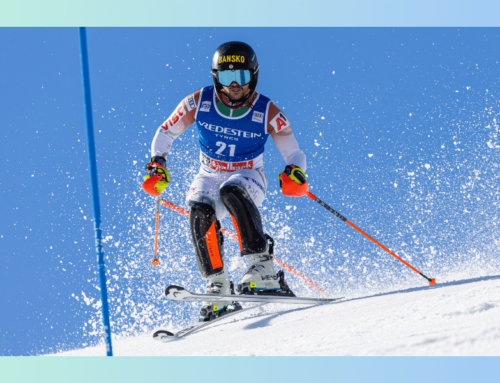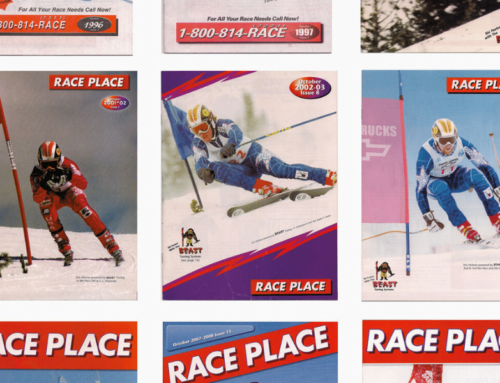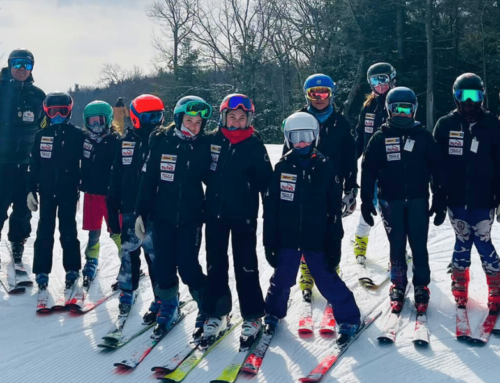Swiss Ski President Urs Lehmann reveals vision for FIS future
Editor’s note: This is the third in a series of articles featuring interviews with candidates for FIS president ahead of the June 4 election to replace Gian-Franco Kasper. In these articles, our goal is to provide an outlet for the candidates to state their platforms while we review the history and credentials of each. You can read our first two articles on Sarah Lewis here and Mats Årjes here. Ski Racing Media has not endorsed a candidate at this time.
As part of his campaign for president of the International Ski Federation (FIS), Urs Lehmann hopes to bring the structure, value, and overall success he has built within the Swiss federation to the larger FIS family.
The Swiss alpine ski team has prospered, certainly in terms of on-snow results under Lehmann’s leadership, from winning consecutive nation cups, to individual achievements by top racers, such as Lara Gut-Behrami, Beat Feuz, Michelle Gisin, Corinne Suter and rising star Marco Odermatt, all of whom have made the ski-crazed nation tremendously proud. However, assessing his larger body of work since becoming president of the Swiss federation in 2006, Lehmann touts a strong record off the snow, as well.
The former Swiss racer and 1993 downhill world champion has expanded the overall budget of the powerhouse ski federation from 26 million CHF to a staggering 60 million.
“Whatever we do, the athletes have to be the center at the top of our activities,” Lehmann tells Ski Racing Media. “Since everybody understood that, athletes are going better. If the athletes are going better, then the federation is getting better, the sponsors and suppliers are getting better and that’s how we’ve grown.”
Lehmann, 52, oversees a large staff at Swiss Ski composed of roughly 200 employees catering to the needs of some 300 athletes across 10 disciplines.
In terms of the 60-million CHF budget, which includes marketing activities, he points out, “This is not to pay higher salaries, this is to reinvest into the athletes. That’s also reinventing the youth programs that we have, and even to our regions and ski clubs. … I’m most proud that we have a very consistent system, from the top athletes to the ski clubs. Things are working well. The whole system is running very strong.”
Lehmann, who was nominated by Swiss Ski for the top job at FIS in April 2020, is confident he can make a similar impact on the 135-member governing body if he wins the virtual election on June 4.
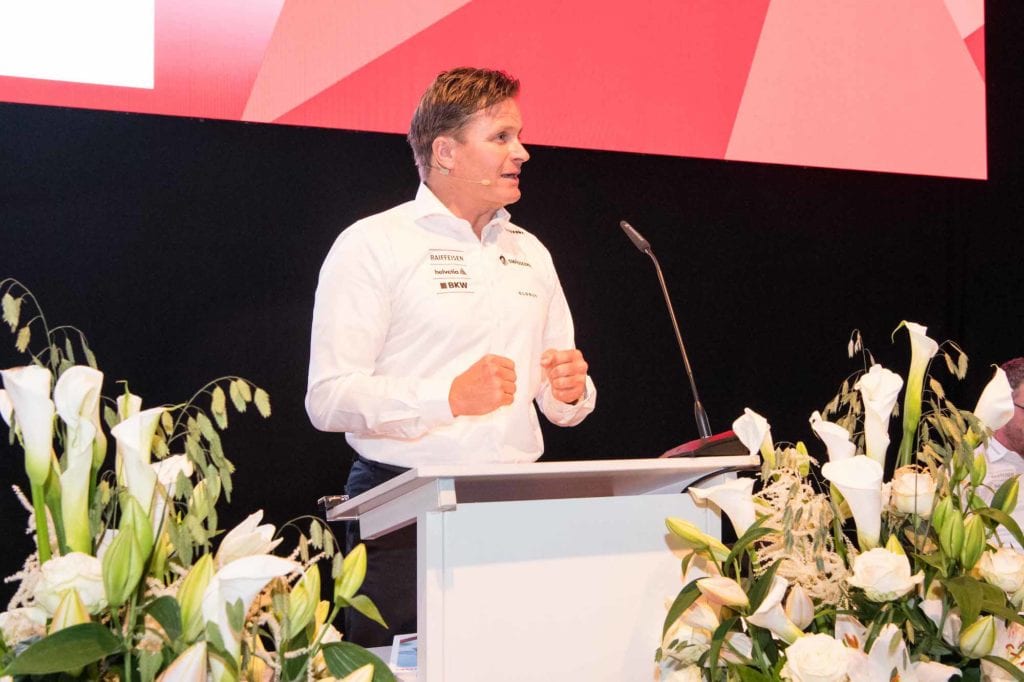
“FIS has grown and developed historically, but not always very structured or strategically,” Lehmann says. “From my point of view, it is a jewel, but it has become dusty over the years. … A federation today has to be run in a sense like a company because it’s about funding, fundraising money and the sponsors,” he said. “You need to have an expertise in an entrepreneurial sense. You have to find majorities, alliances, and (be able to) convince people.
“Somehow, it’s a hybrid system, and it’s the same whether it’s the Swiss Ski Federation, which is one of the largest federations in the world, or FIS, which is the biggest with 130 countries,” he said. “The Swiss Ski success is my best reference that I can bring to this candidacy and election.”
Four key areas to improve FIS
Lehmann lays out his plan of action with concentration on four primary areas:
- Unifying the FIS family
- Developing a “state-of-the-art” structure
- Improving the sport side
- Digitalization
Lehmann says he is concerned when he hears national ski associations (NSAs) telling him, “I don’t feel like a member of the family.”
“This is something that we have to work on. A family that is working together is a strong family,” he said.
Lehmann says he is “100% convinced that work must be done” to improve an outdated structure at FIS and a clear strategy must be defined. “Something simple is, FIS needs a sports director. I have three at Swiss Ski — one each for alpine, Nordic and freestyle.”
FIS governance must be improved and marketing streamlined, he says. Lehmann references the International Biathlon Union’s “Target 26 Strategy,” suggesting FIS should implement a similar roadmap and vision for the sport’s future.
“Things have been done in bits and pieces, but there is no clear system,” he says.
“What about transparency? What about gender diversity? People are talking about this, but there is no clear set of values and ethics.”
From a sports perspective, Lehmann believes alpine is generally healthy, however, he is concerned about the lack of promotion and development of other disciplines.
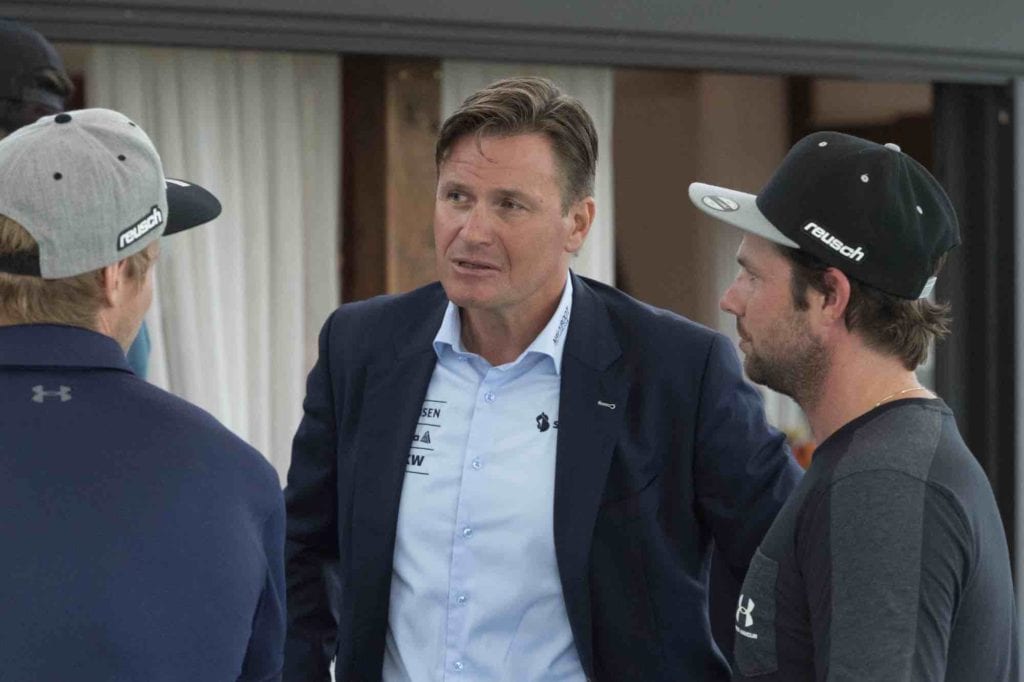
“Overall, alpine is a good product and that is what we can sell to the sponsors and how you create value — value for the system, for the family, athletes and NSAs, but we don’t have that with the new sport disciplines and that’s very important,” Lehmann said.
Lehmann notes that freestyle skiing, snowboarding and freeskiing events lose money, and disciplines such as halfpipe, slopestyle and big air must be promoted more strategically with consistent events.
“There is not even a title sponsor,” he said. “We have a lot of potential on the sports side.”
Lehmann also talks about the enormous untapped potential of the digital age, particularly gaming to attract youth.
“The key word for me is E-gaming,” the Swiss sports leader says.
Lehmann refers to a recent conversation he had with FIFA president Gianni Infantino.
“Last year, without spectators, the only reason they were profitable with very good revenues was because of gaming and their FIFA game,” Lehmann said. “This is the path we have to walk down — we are progressing at FIS, but we are years behind because we are still talking (about) to whom belong the rights and who gets what revenues,” he said, noting how car racing and ice hockey organizations have also profited through innovative, interactive gaming.
“We need to make a huge effort in this direction to bring in more revenue streams,” a goal he says is achievable within two years.
New races and North America
Lehmann proposes more races in new places.
“I have a clear position, a clear conviction that FIS has to be more international, if not global, as the largest winter sports federation,” Lehmann said. “Global means that we have races all over the world.
“In North America, yes, we should have more events because you have a huge history, a huge culture like the Crazy Canucks and superstars like Daron Rahlves, Bode Miller and Mikaela Shiffrin. You can even go back to the ’80s to the Mahre brothers. You’ve always had superstars,” said the former Swiss downhiller, whose World Cup racing career spanned from 1990-1997.
Lehmann notes that Australia and New Zealand both have avid freestyle cultures and new events should also be considered for these countries.
“We have to go to interesting markets with high potential and local heroes,” he said. “We also have to be more creative with where and how we allocate top events.”
As the leader of Swiss Ski, Lehmann says progress has been made on a unique project that would launch early-season World Cup speed races, starting in Switzerland on the Matterhorn and finishing in Italy, in the town of Cervinia.
“We would start the season earlier and take pressure off (the schedule) throughout the main season, opening more room for other projects,” Lehmann said. “Maybe we could stay one or two weeks longer in North America or maybe we would even come back in March. We should think about these things because we need a strong North America.”
Sustaining Swiss leadership
Should Lehmann win the twice-postponed June 4 election, he would extend Switzerland’s reign over the federation beyond 70 years.
FIS has had just four presidents in its 97-year history with two Swiss leaders — Marc Hodler and the retiring Gian-Franco Kasper — having led the federation since 1951.
Lehmann is not overly concerned amid murmurs that a change may be in order.
“It’s not about nationality, change, or the color of your skin,” Lehmann says, his voice rising with passion. “It’s about the best person available in the world to take the role and bring the FIS family to the next level and develop the next generation.”
